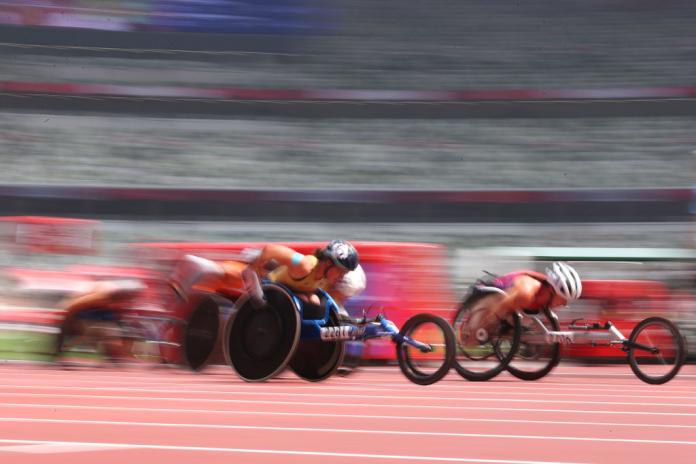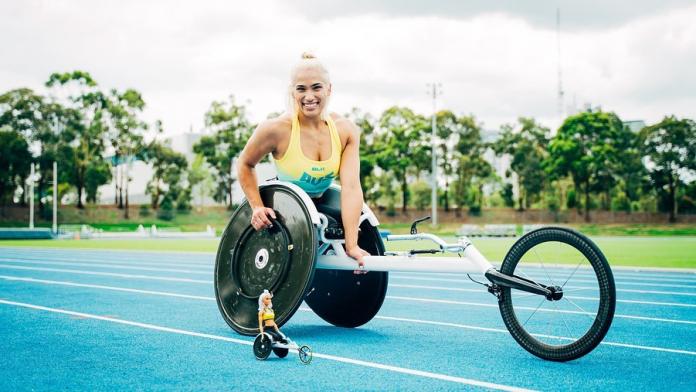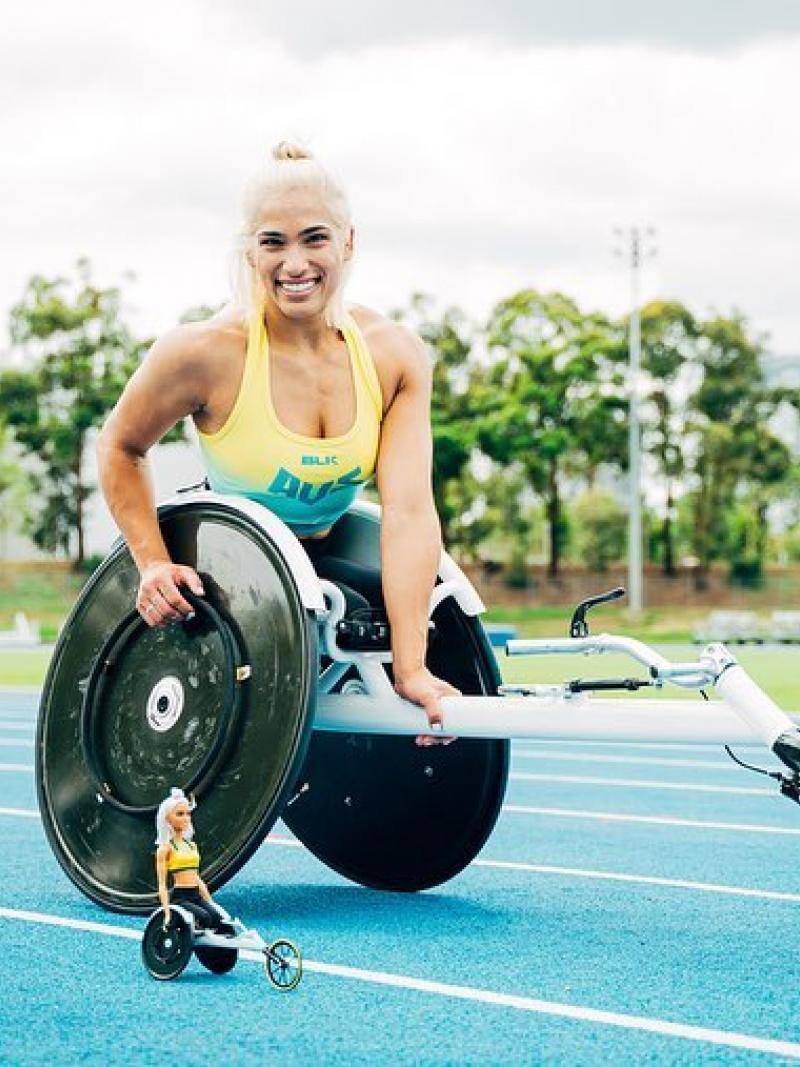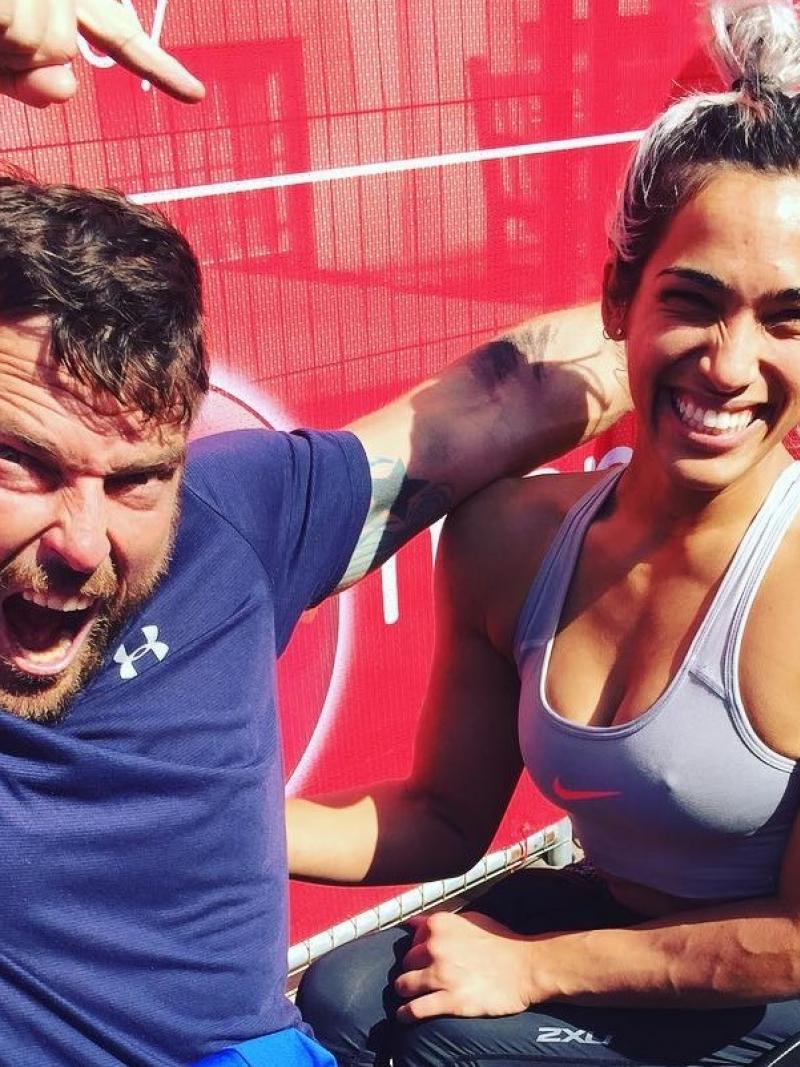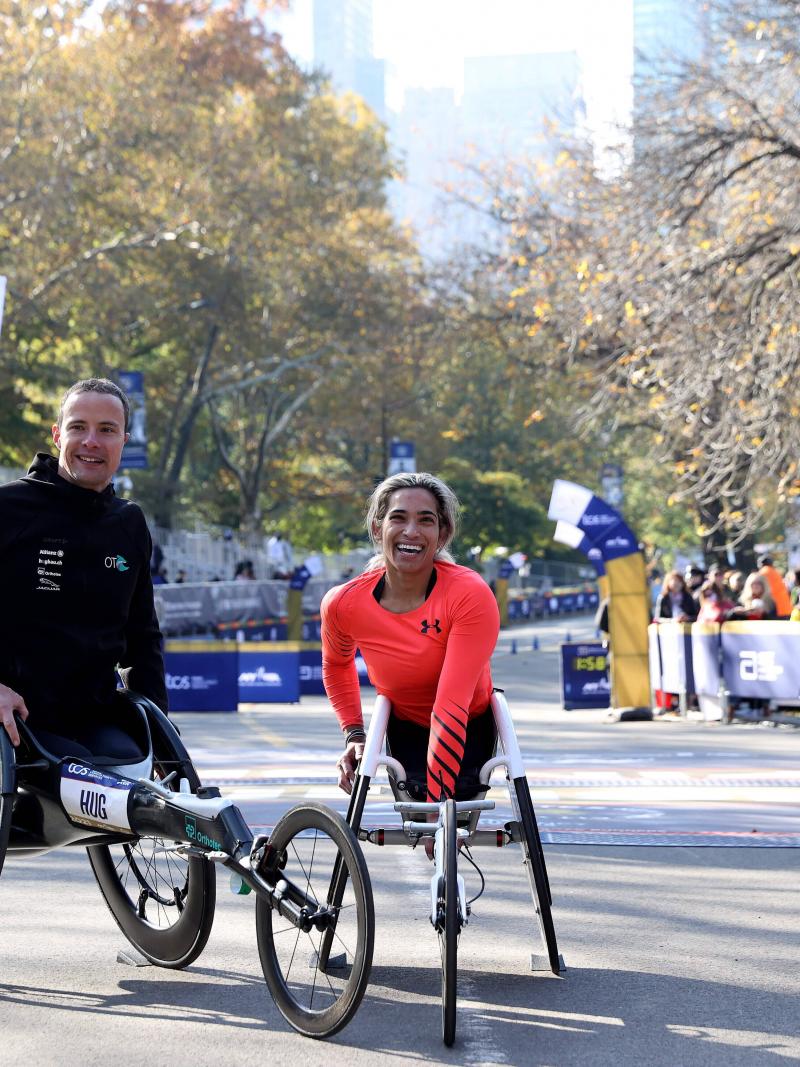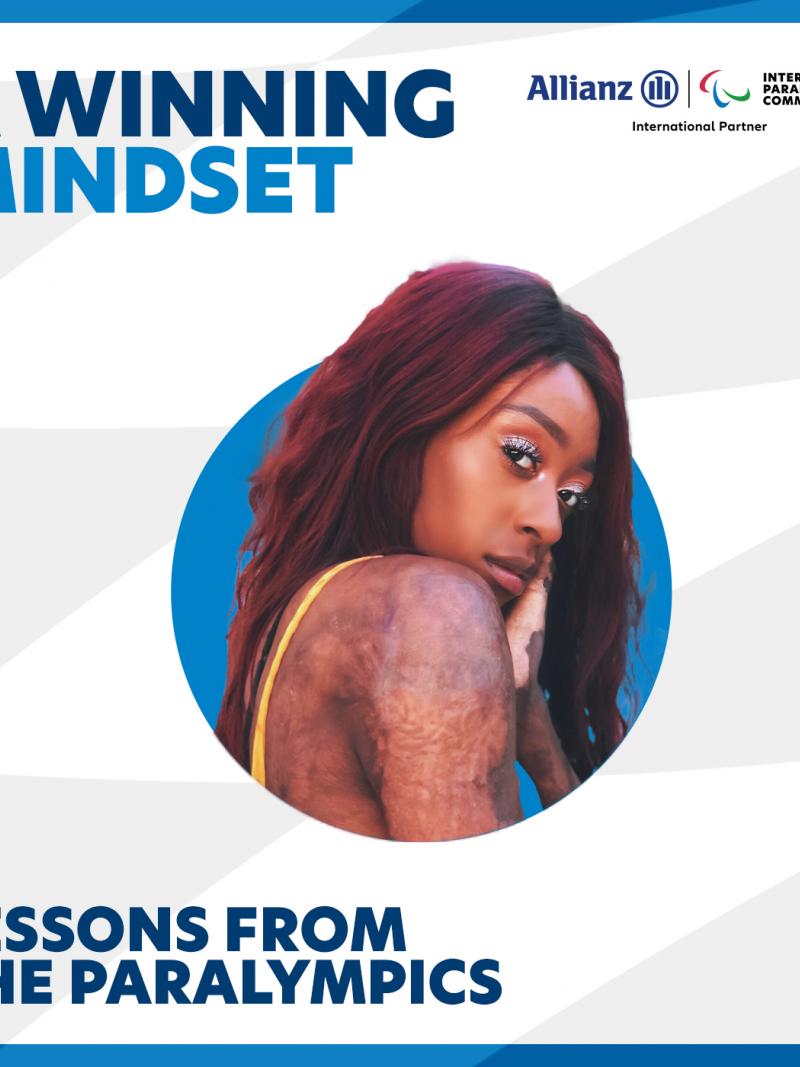Madison de Rozario on how Para sports taught her to love her ‘perfect’ body
'I believe with every part of me that sport is the easiest, healthiest way to unlearn all those things that we’re taught to believe growing up' 01 Jun 2022Madison de Rozario admits she “resented” her body when she was growing up. Becoming a six-time Paralympic medallist – and getting a Barbie doll designed in her honour – made her realise it is perfect just as it is.
“Finding wheelchair racing, for the first time in my life I found the world that was truly designed for me by people that look like me,” the Australian athlete said.
“This body that I had grown to resent a little bit because it wasn't my idea of perfect, what I’ve been told it needed to be, was suddenly perfect for wheelchair racing. Everything that I disliked about it was suddenly required for this sport and I learned to love my body through everything that this sport took me through.”
Tracks and mirrors
De Rozario was four years old when she contracted transverse myelitis, a neurological disorder that caused an inflammation of her spinal cord and left her paralysed from the waist down.
The new body was not easy for de Rozario to come to terms with and while she tried some wheelchair sports to get a feeling for it, that too was not an immediate success.
She dabbled in wheelchair basketball and tennis before settling on wheelchair racing in 2006. Her success rate did not improve much after the switch, however.
Seeing the teenager struggle with her race chair, her mother told her that she could quit the sport, but de Rozario stubbornly pushed on.
That stubbornness paid off as only two years later de Rozario made her Paralympic debut in Beijing. At age 14 she was the youngest athlete in the Australian delegation.
Her journey to China was also not only for the sake of experience: she came away with a silver from the women’s 4x100m T53/54 relay.
At the London 2012 Paralympic Games, de Rozario finished just off the podium in four races. Four years later she won her first individual medal, a silver in the women’s 800m T53, in addition to a silver with the women’s 4x400m T53/54 relay team.
At Tokyo 2020 she became a Paralympic champion after winning her signature women’s 800m T53 race, followed by another victory in the women’s marathon T54. She also picked up a bronze in the women’s 1500m T54.
In addition to her Paralympic hardware, de Rozario has won multiple medals at the World Championships and Commonwealth Games, Grand Prix and prestigious marathons.
With the training and races there also came a new appreciation for her body.
“It’s not just accomplishments, not just achievements or world titles or anything like that, but who it allowed me to become,” de Rozario said.
“The biggest impact that sport can have on and for people with disabilities is learning to reclaim and to own your physical self,” she added. “If you are asking as much of your body as sport asks of you, on a Paralympic level, an elite level or on a grassroots participation level, it doesn’t matter, if you are demanding anything of your body physically, you have to have that love and respect for it.”
Model for the new generation
After falling in love with her body thanks to sport, being honoured with a personalised Barbie doll was the icing on the cake for the Australian racer.
In 2020 de Rozario was among several athletes who had dolls designed in their likeness. Her doll came complete with a race wheelchair and was revealed on International Women’s Day.
And just as thousands of kids around the world pick up Barbie dolls to play with, de Rozario hopes that they, like her, will also pick up a sport.
“Anyone who wants to get into any kind of sport, start! Find anything and it’ll progress from there,” she said.
“I, and everyone I know, we tried so many things. We've failed at so many things. I think even as an elite athlete, you fail so many more times than you succeed. That’s just how sport goes. That's how it all works. And that is 100 percent OK. Lean into those failures. Try anything and everything until you find something you love.”

 Facebook
Facebook
 Instagram
Instagram
 Twitter
Twitter
 Youtube
Youtube


